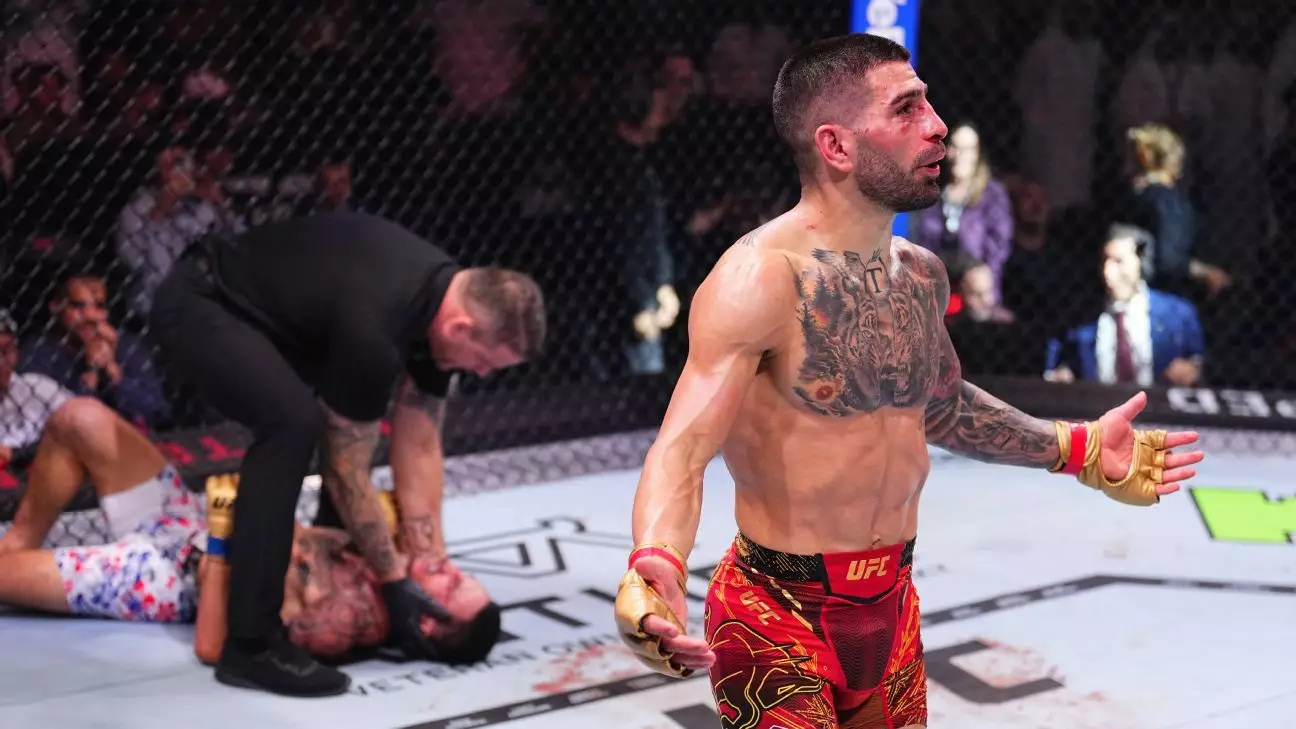UFC 308 was an event that signaled significant shifts in the landscape of mixed martial arts, particularly as some veteran fighters faced younger competitors. With a few former champions tasting defeat, the implications for future matchups are profound. This article scrutinizes the outcomes of the main card and their consequences for the division, focusing on how fighters will redefine their careers in a rapidly changing sport.
In the main event, Max Holloway, renowned for his striking and endurance, suffered a shocking loss against Ilia Topuria, who made his mark as a knockout artist in the featherweight division. This was not just a defeat for Holloway; it was the first stoppage loss of his career, one that might compel him to reassess his trajectory in the UFC. Topuria has emerged as a formidable contender, demonstrating not only raw power but also a strategic maturity that belies his experience level.
Holloway must now contend with a pressing question: what does this loss mean for his future? While he has achieved legendary status, he needs to consider whether continuing at the featherweight division aligns with his long-term health and career goals. With Volkanovski eyeing a rematch, fans are left to ponder Holloway’s next steps; will he continue to pursue the featherweight title, or seem to find solace in an alternate weight class?
Khamzat Chimaev: The Submission Machine
Khamzat Chimaev showcased his grappling prowess with a first-round submission victory over Robert Whittaker in the co-main event. This dominating performance highlighted Chimaev’s growing reputation as a potential title contender in the middleweight division. After his recent display of skill and determination, he stands poised for a title shot, but the question now is who he will face next.
The urgency surrounding Chimaev’s ascent is two-fold: he must remain active to capitalize on the momentum generated from his victory, while simultaneously positioning himself against worthy opponents. A match with the winner of the anticipated bout between Dricus Du Plessis and Sean Strickland could serve both purposes, as it provides an opportunity for Chimaev to flatten the competition and further his claim to the championship.
Emerging Contenders: The Case for Magomed Ankalaev
Light heavyweight representation continues to evolve, with Magomed Ankalaev reestablishing himself through a decisive unanimous decision over Aleksandar Rakic. The question of who takes the next step toward competing for the title is fraught with complexity, particularly with Alex Pereira hovering nearby as a potential challenger.
Ankalaev’s technical striking and tactical approach have drawn attention, yet it remains uncertain whether he will immediately face Pereira next. The UFC’s matchmaking tendencies often result in unexpected scenarios, and if Ankalaev were to be bypassed for another title challenge, it could set a precarious precedent in the division. The anticipation surrounding who will secure a title shot against Pereira only amplifies the competition, making this a pivotal moment for the light heavyweight class.
The Future Matchmaking Dilemma
After UFC 308, the deck has been reshuffled significantly. With heavyweights and middleweights clamoring for attention, and featherweights vying for supremacy, the need for strategic matchmaking becomes critical. Each fight must not only serve to determine winners and losers but also consider the long-term narrative arcs of these fighters’ careers.
Fighters like Dustin Poirier are showing interest in their futures, indicating that Holloway may soon find himself contending at lightweight again. Both are seasoned fighters with extensive accolades, and a matchup is ripe for the making, possibly serving as a farewell bout for one of them. Similarly, perched in the background, other contenders like Michael Chandler are ready for exciting matchups, indicating that the lightweight division remains intensely competitive.
Robert Whittaker’s recent performance against Chimaev raises questions regarding his next moves. While Whittaker has long been a decorated champion, the nature of his loss could prompt a change in how he approaches future fights. Staying relevant in a division filled with emerging talent will test his resilience and adaptability. A potential matchup against Caio Borralho may provide Whittaker the opportunity he needs to bounce back, making a strong case for reclaiming title contention.
The constant evolution of fighters and their needs makes the matchmaking process intricate and often unpredictable. However, through strategic bouts and well-timed fights, the UFC has the potential to maintain the excitement within the organization and keep fans invested in the journeys of their favorite fighters. UFC 308 may have ended an era for some, but it also laid the groundwork for new rivalries and narratives ready to unfold. As these athletes seek to secure their place in the annals of combat sports history, the octagon will continue to be a stage for both testing and redefining greatness.

